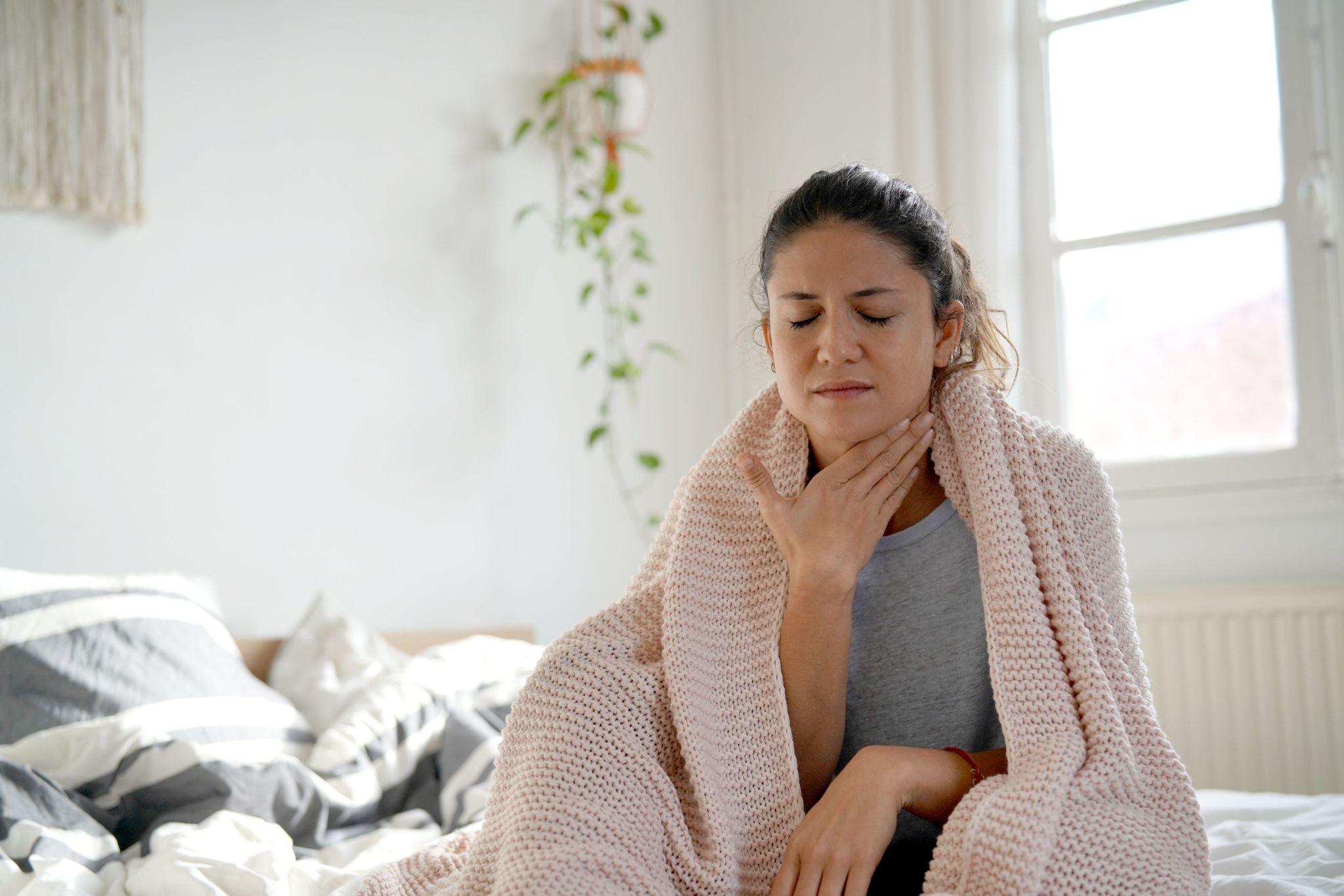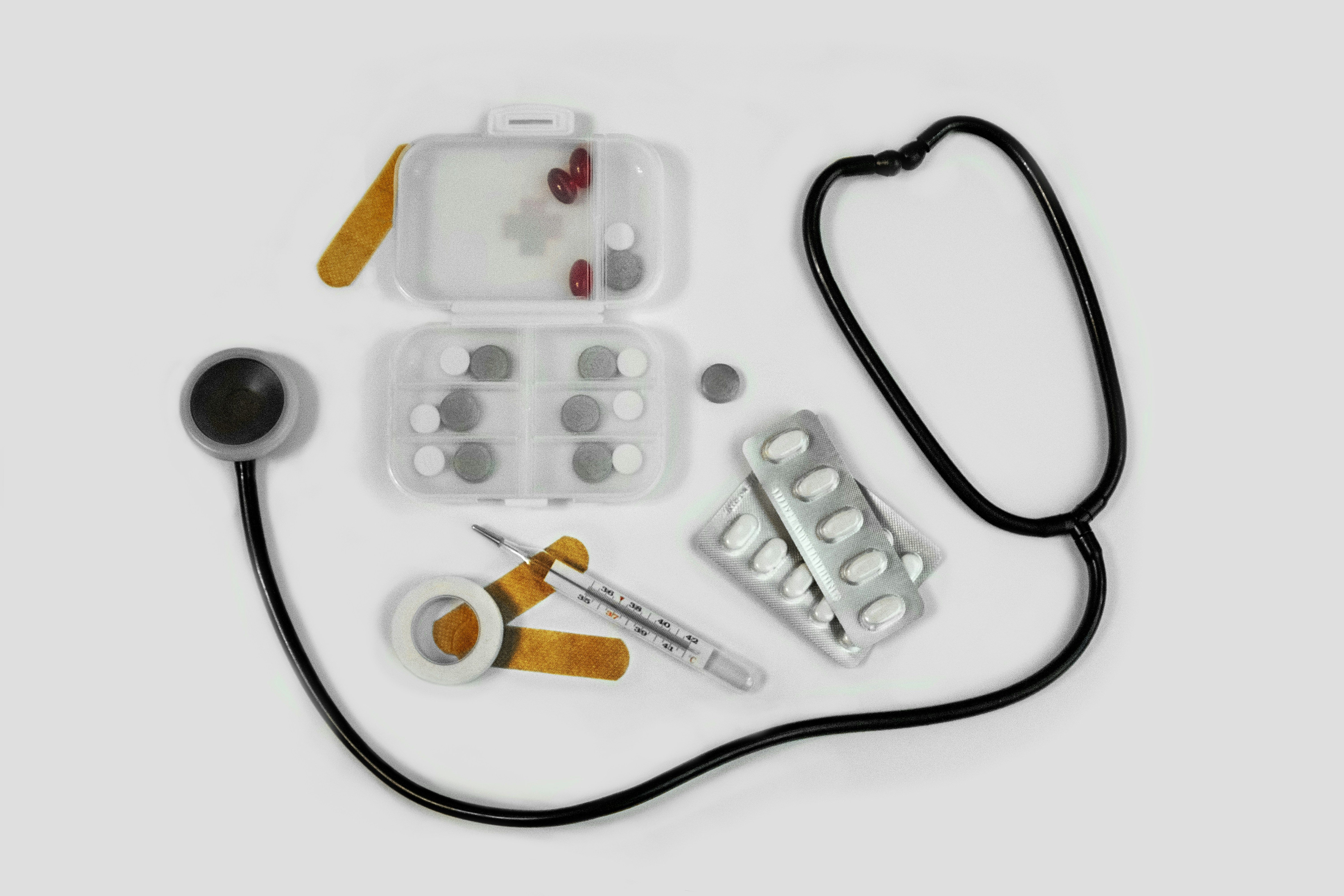Cold weather often leads to congestion and pressure that can feel like a stubborn cold, but several different upper respiratory problems can cause these symptoms. Two of the most common are allergies and sinus infections, and because they share similar signs, it’s not always obvious which one is responsible.
Looking at how each condition develops and how it affects the body can help you understand what’s happening and choose the right type of care.
The Link Between Winter Allergies and Sinus Infections
Allergies and sinus infections often intersect because they involve the same nasal passages and the same inflammatory processes. When allergies irritate and swell the lining of the nose, the sinuses lose their ability to drain properly.
That trapped mucus creates an environment where bacteria or viruses can grow, increasing the chance of an infection. Dry indoor air, limited ventilation, and ongoing exposure to indoor allergens make this progression even more common during colder months.
Symptoms
Winter congestion can stem from different upper respiratory conditions, so recognizing how each one presents can help you better understand the source of your symptoms.
Symptoms of Winter Allergies
Here are the signs of allergies in winter months:¹
- Thin, continuous nasal drainage that doesn’t thicken like it does with a cold
- Frequent sneezing spells, especially after being indoors for long periods
- Shadowing or discoloration under the eyes from ongoing congestion
- Irritation or tickling sensations in the eyes or nose
- Persistent cough that comes and goes throughout the day
- Eyes that water easily, often worsening when exposed to dust or pet dander
Symptoms of Sinus Infections
Here are the common signs of sinus infections people notice:²
- A lingering sore throat or cough from mucus sliding down the back of the throat
- A feeling of fullness or blockage in the nose that can change the sound of your voice
- Pressure or discomfort in the face, especially around the eyes, forehead, or cheeks
- Head pain linked to the sinuses, which may feel worse when you recline
- Breath that smells unpleasant when mucus collects in the throat
- Thick or tinted nasal mucus that indicates poor sinus drainage
- A mild rise in temperature, usually on the lower end of the fever range
- Runny nose or persistent drainage as the sinuses work to clear themselves
Causes
Changes in airflow, indoor environments, and exposure to irritants can influence both allergies and sinus infections, making it important to understand what triggers each condition.
Causes of Winter Allergies
Seasonal allergies in winter often develop from:¹
- Mold growth hidden in damp places like bathrooms, basements, or around leaky windows, releasing spores into the air
- Dust mites that thrive in warm bedding and upholstered furniture, releasing particles that cause irritation when disturbed
- Pet dander and proteins found in saliva or dried skin flakes that accumulate more quickly when pets spend extra time indoors
Causes of Sinus Infections
Sinus infections in the winter and year-round are commonly linked to:²
- Viral illnesses, which are the leading cause and often begin after a cold
- Bacteria that take hold when swelling or blockage prevents the sinuses from draining
- Fungal organisms, which are uncommon but can cause infection in certain situations

Treatment
Managing allergies and sinus infections requires targeting the inflammation and congestion behind the symptoms, using a mix of supportive care and the right treatment approach for each condition.
Treatment for Winter Allergies
Allergy treatment focuses on calming the immune response and limiting exposure to triggers. Options often include:¹
- Antihistamines that ease sneezing, itching, and runny nose
- Decongestants that temporarily reduce swelling and help open nasal passages
- Allergy immunotherapy delivered through shots or dissolvable tablets, which gradually retrain the immune system to react less strongly over time
Treatment for Sinus Infections
Sinus infection care depends on what is causing the inflammation and how long symptoms have been present. Many cases clear with supportive treatment, though some require medication. Treatment options often include:²
- Over-the-counter medications, such as antihistamines or oral decongestants, if congestion is linked to allergies
- Nasal sprays, including steroid sprays that ease swelling without causing rebound congestion, and short-term decongestant sprays used for only a few days
- Home remedies like warm compresses, humidifier use, nasal rinses, staying hydrated, and drinking warm fluids to thin mucus and support drainage
- Safe nasal irrigation, using distilled water, cooled boiled tap water, filtered water, or premixed solutions to avoid contamination
- Antibiotics when symptoms point to a bacterial infection that does not improve after about ten days or improves briefly then worsens again
Prevention
Taking steps to limit irritants and maintain a healthy environment can set the foundation for preventing both allergy symptoms and sinus infections.
Preventing Winter Allergies
Preventing allergy symptoms starts with minimizing contact with the substances that set them off. Helpful strategies include:¹
- Removing mold-prone items, such as old shower curtains, damp wallpaper, or carpeting that stays wet
- Cleaning showers and sinks with a diluted bleach solution to prevent mold growth
- Keeping indoor humidity under 50 percent with a dehumidifier to discourage dust mites and mold
- Filtering indoor air with a HEPA purifier to reduce dust and airborne particles
- Washing bedding in hot water each week to eliminate dust mites
- Using protective covers on mattresses, pillows, and comforters to block allergen buildup
- Managing pet exposure, such as keeping pets out of the bedroom, bathing them regularly, and bringing your own pillow when staying in homes with animals
- Choosing lower-allergen holiday decorations, like artificial trees, wiping down ornaments before use, and storing firewood outdoors until it’s ready to be burned
Preventing Sinus Infections
Sinus infections often begin when inflammation disrupts normal drainage. You can reduce the chances of this by:²
- Avoiding smoke and strong pollutants that irritate the nasal passages
- Washing your hands frequently, especially during cold and flu season
- Addressing untreated allergies, since ongoing inflammation increases infection risk
- Managing related health conditions, including GERD or enlarged adenoids in children
- Limiting exposure to respiratory irritants, particularly if you’re prone to recurring infections
Travel Considerations
Winter travel, especially around the holidays, can make allergy and sinus symptoms flare more easily. Airplane cabins and long car rides expose you to very dry air, which irritates nasal passages and makes them more reactive. Holiday decorations, unfamiliar homes, and crowded indoor spaces can also introduce new triggers like dust, mold, or pet dander.
To reduce the chance of symptoms during trips, use saline spray to keep your nose hydrated, drink plenty of fluids, and bring any allergy or sinus medications you typically use. Choosing lodging with good airflow, wiping down surfaces, and packing your own pillowcase can also help limit contact with irritants while you’re away.¹,²
Getting Care Anytime With 24hrdoc
If your symptoms worsen or you’re unsure whether you’re dealing with allergies or a sinus infection, 24hrdoc makes it easy to get help when you need it.
Our licensed medical providers offer online allergy treatment and sinus infection treatment, with prescriptions sent directly to your pharmacy when appropriate. We’re open every day, including holidays, so you can get relief without waiting for traditional offices to reopen. And if you’re traveling for holiday plans, you can still meet with a provider from anywhere to manage symptoms and stay on track with the care you need.
Start your visit with 24hrdoc today and get fast, reliable care for allergy and sinus symptoms whenever they strike—at home, on the road, or during the busiest holiday moments.
Sources:
- WebMD. Do You Have Winter Allergies?.
- Healthline. What to Know About Sinus Infection (Sinusitis).





